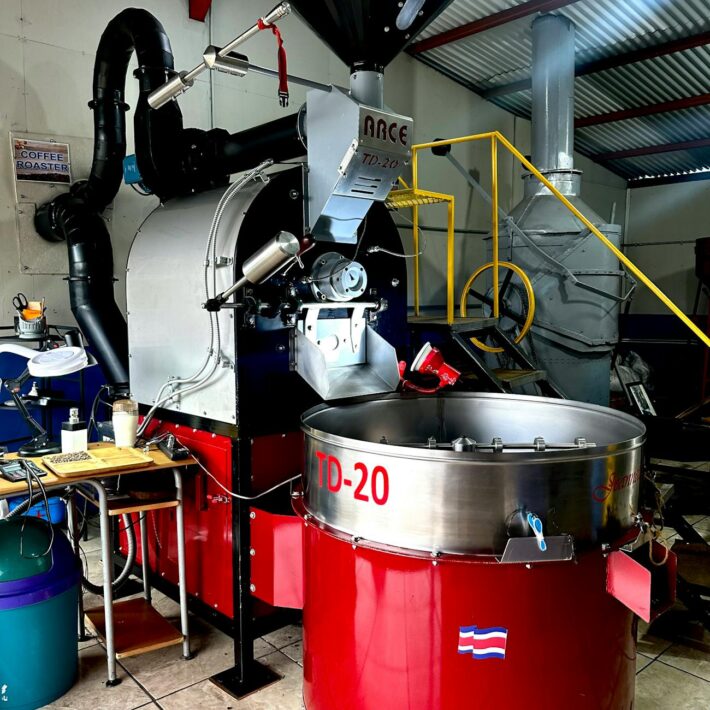Canned Vegetables Business Ideas to Start in 2024

Contents
Canned Vegetable Business Ideas to Start in 2024
Launching a canned vegetable business in 2024 presents exciting opportunities in a growing market. Consumers are increasingly seeking convenient, healthy, and quality options. This niche offers a chance to stand out with a strong brand identity, focusing on a unique selling proposition (USP) within the competitive canned goods sector.
Canned Vegetable Business Types
A variety of business models await savvy entrepreneurs. These models offer unique opportunities for small business owners in the canned vegetable market. Consider these concepts:
-
Specialty Veggie Line: Focus on a particular type of vegetable, like heirloom tomatoes or exotic peppers. This unique approach often targets chefs and food enthusiasts looking for high-quality ingredients. Target chefs in local restaurants, high-end markets, and online food delivery platforms.
-
Organic and Sustainable Canned Vegetables: Offer a line of organically-grown and sustainably produced canned vegetables. The target audience encompasses environmentally conscious consumers and health-conscious individuals.
-
Canned Vegetable Blends: Craft unique blends featuring unusual vegetable combinations with distinct flavors. Consider regional or international flavors to create your own distinct niche.
-
Canned Vegetable "Meal Kits": Create a variety of kits with different canned vegetable combinations, alongside complementary spices or grains. This is a good approach for convenience-seeking consumers looking for ready-to-prepare meals.
-
Canned Baby Food Line: Focusing on a specialized line of canned baby food featuring an array of vegetables, this approach allows targeting of parents and toddlers requiring convenient, nutritional meals.
-
Gourmet Canned Vegetables: Create gourmet canned vegetables using premium ingredients. Target consumers interested in upscale food products and culinary experiences.
-
Locally Sourced Canned Vegetables: Collaborate with local farmers to offer canned vegetables showcasing the unique flavors of your region. Leverage your local community and promote a brand associated with local food.
-
Value-Based Canned Vegetables: Target families seeking economical and nutritious canned vegetables for everyday use.
-
Canned Vegetable Sauces and Pastes: Make specialized canned sauces and pastes using unique blends of vegetables and spices. Target individuals looking for convenient and flavorful additions to meals.
-
Canned Vegetable Sides for Gluten Free or Keto Diets: Create specific canned vegetable products, catering to special diets and dietary restrictions like gluten-free or keto. Target individuals looking for alternative and healthy sides for meals.
-
Canned Vegetables with Unique Flavors: Explore creative flavor combinations by adding unique spices, herbs, or regional touches to the canned vegetable varieties. Target individuals interested in innovative and flavor-rich additions to meals.
-
Canned Vegetables for International Cuisine: Create canned vegetables suited for different international cuisines. Explore the possibilities with different flavor profiles and recipes to build brand recognition.
-
Canned Vegetables for Specific Uses: Use these products to focus on a specific use, such as canned vegetables perfect for smoothies, salads, soups, or dips.
-
Canned Vegetables with Extended Shelf Life: Emphasize long shelf life for your canned vegetables, a suitable solution for time-constrained consumers and those needing prolonged food storage.
-
Bulk Canned Vegetable Options: Offer bulk packages at affordable prices to cater to families and food service businesses requiring large quantities.
-
Canned Vegetable Line with Creative Packaging: Set your line apart by implementing innovative and eye-catching packaging to maximize visual appeal.
-
Canned Vegetarian and Vegan Vegetables: Design a specialized vegetable line catering to vegetarian and vegan consumers.
Product Differentiation and Niche Markets
To stand out in the canned vegetable market, focusing on particular product characteristics is essential. Consider these factors when constructing your USP:
-
Specific Types of Vegetables: Focus on niche vegetables. Consumers appreciate specializing in products like organic tomatoes, exotic peppers, or rare green beans.
-
Unique Flavors: Using unique flavor profiles can attract a loyal customer base.
-
Premium Ingredients: Offer canned vegetables with premium ingredients to enhance the experience. Consider adding locally sourced products to enhance regional appeal.
-
Organic, Sustainable, or Internationally Inspired Options: A wide array of niche markets exists, like sustainable canned vegetables or products suited to various cuisines.
Branding and Logo Design for Canned Vegetables
Building a strong brand identity is paramount. Consider these factors:
-
A Memorable Logo: A well-designed logo acts as a visual representation of your brand. It's vital for brand recognition.
-
Brand Colors: Select brand colors that evoke the desired emotions and associations.
-
Overall Aesthetic: Maintain a consistent design style across all marketing materials.
-
Logo Design Resources: Explore free graphic design platforms and resources for effective logo design options. logomakershop.com/logo-design-resources
Packaging and Labeling Strategies
Strategic packaging and labeling enhance product appeal and provide crucial product information:
-
Eye-Catching Packaging: Select packaging designs to create visual appeal.
-
Clear Product Information: Provide clear labeling with all the relevant product details.
-
Informative Descriptions: Offer detailed descriptions of the product ingredients and preparation suggestions.
-
Sustainability Considerations: Integrate eco-friendly packaging options to appeal to environmentally conscious consumers.
Marketing and Sales Strategies
Effective marketing is crucial for success. Consider:
-
Social Media Marketing: Build a presence on social media to reach potential customers.
-
Content Marketing: Develop engaging content about healthy recipes, cooking tips, or vegetable variety information.
-
Influencer Collaborations: Partner with relevant food bloggers and influencers to promote your products.
-
Distributor Relationships: Cultivate relationships with distributors to increase market penetration and expand your reach.
-
Cost-Effective Strategies: Explore cost-effective promotional activities to boost product awareness.
Financial Projections and Management
Thorough financial planning is essential.
-
Start-up Costs: Estimate the initial investment for production equipment, packaging, and marketing.
-
Operating Expenses: Project ongoing expenses for production, packaging, and distribution.
-
Potential Profit Margins: Analyze potential profit margins for your specific canned vegetable offerings.
-
Financial Management Tools: Use relevant financial tools to manage your budget effectively.
Legal and Regulatory Considerations
Adhere to legal regulations.
-
Food Safety Certifications: Ensure you meet all food safety standards.
-
Licensing Requirements: Understand and comply with all local and federal regulations.
-
Legal Resources: Use resources to gain further insights into legal implications and industry standards.
Operational Planning and Management
Efficient operations contribute significantly to success. This includes:
-
Production Processes: Implement and streamline efficient production strategies.
-
Quality Control Measures: Maintain the highest standards to ensure consistently high quality.
-
Inventory Management: Optimize inventory to avoid overstocking and shortages.
-
Hiring the Right Team: Delegate and manage efficiently to enable growth in your business.
Distribution Channels for Canned Vegetables
-
Direct Sales: Sell directly to consumers, using a platform that builds and fosters strong client relationships.
-
Wholesale Partnerships: Establish partnerships with local stores and restaurants to expand market reach.
-
Online Marketplaces: Use online platforms for direct sales, enhancing accessibility and reach.
Sustainability Practices
Consumers increasingly seek ethical and sustainable options.
-
Sustainable Sourcing: Focus on sustainably sourced ingredients to meet consumer demands.
-
Eco-Friendly Packaging: Implement eco-friendly and recyclable packaging to build positive brand recognition.
-
Responsible Production Methods: Operate in a manner that upholds responsible production methods to meet consumers' increasing demand for ethical business practices.

Photo by Canva Studio (https://www.pexels.com/@canvastudio)
Conclusion
Starting a canned vegetable business in 2024 presents opportunities for entrepreneurial ventures. A strong brand, thorough market research, a well-defined target audience, and financial planning are key factors for success. Researching various business models, such as focusing on specialty veggies, organic options, or unique flavors, and developing a comprehensive business plan can help you embark on this venture. Remember, the canned vegetable market is ripe for innovation.

As our Chief SEO & Branding Strategist, Robert Ellison is a digital marketing visionary with over 25 years of experience transforming brands through smart, data-driven SEO and impactful storytelling. Known for his expertise in aligning technical SEO with authentic brand narratives, he leads our team in creating strategies that boost search rankings while building strong, sustainable brand identities. A trusted advisor and frequent industry speaker, Robert combines deep technical knowledge with creative insight, helping our clients not only reach the top of search results but also genuinely connect with their audiences.








